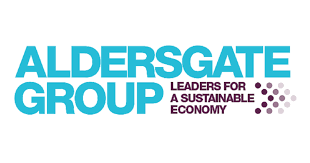This book chapter advances SDGs 3 and 17 by focusing on providing a brief overview of genes associated with sporadic (late-onset) Alzheimer's disease (AD). Despite decades of research, no current and reliable test is currently available for the diagnosis of AD. Genetic biomarkers are promising for both diagnostic tools and tailored profiling therapy.
This book chapter advances SDGs 3 and 17 by discussing available data regarding the effects of genetic variants on the clinical and pathological characteristics of “frontotemporal dementia” (FTD). The term “frontotemporal dementia” (FTD) defines a group of related diseases resulting from progressive degeneration of the temporal and frontal lobes. These areas play a significant role in decision-making, behavioral control, emotion, language, and motor functions.
This book chapter advances SDGs 3 and 17 by describing how acute hospital settings can affect the care of patients with dementia. As well as changes to the physical hospital environment, this requires an enhanced focus on key strategies such as reliable identification of cognitive impairment, access to comprehensive geriatric assessment, prevention and management of delirium, and timely discharge planning are included in the chapter.
This book chapter advances SDGs 3 and 17 by reviewing pathological and functional outcomes of both preventative and therapeutic environmental enrichment on commonly used mouse models of amyloid pathology.
This book chapter advances SDGs 3 and 17 by discussing the potential impact of dementia on creativity, physical activity, and exercise participation and whether exercise and creativity may each exert individual effects on the maintenance and/or facilitation of cognitive health. This chapter explores the context of biological and theoretical mechanisms underlying dementia and provide recommendations for future research experiments unifying physical exercise and creative activities into tailored interventions designed to better comprehend this disease and perhaps counteract the devastating implications dementia prognoses present to optimal physical and mental functioning across the human life span.
The SDG Impact of COVID-19 podcast series gathers expert opinion exploring the impact of COVID-19 on the Sustainable Development Goals. In this segment, we get the view of Joan Walley, Chair of the Aldersgate Group and former Labour MP.
Elsevier,
Shard Chander, Ashwin Gujrati, Aswathy V. Krishna, Arvind Sahay, R.P. Singh; Hyperspectral Remote Sensing, 2020, Pages 197-219
This chapter contributes to SDG 6 and 9 by providing hyperspectral remote sensing techniques to monitor inland water quality.
A Commission on dementia prevention, intervention, and care, in the context of SDG 3, focusing specifically on individual-level and policy-level interventions for modifying risk factors to prevent or delay onset, tackling inequalities, providing holistic post-diagnostic care, managing neuropsychiatric symptoms, and caring for family carers.
Elsevier,
William H. Schlesinger, Emily S. Bernhardt, Chapter 11 - The Global Carbon and Oxygen Cycles, Editor(s): William H. Schlesinger, Emily S. Bernhardt,
Biogeochemistry (Fourth Edition), Academic Press, 2020, Pages 453-481, 9780128146088
Life is composed primarily of carbon, so estimates of the global production and destruction of organic carbon give us an overall index of the health of the biosphere. This book chapter advances SDGs 11 and 13.
This news report addresses SDGs 3 and 5 by highlighting how the COVID-19 pandemic has led to a global surge in violence against women and girls. The report highlights that lack of access to sexual and reproductive health services during the lockdown and thereafter could result in up to 7 million unintended pregnancies worldwide, and up to 2·7 million unsafe abortions and 11 000 pregnancy-related deaths.

